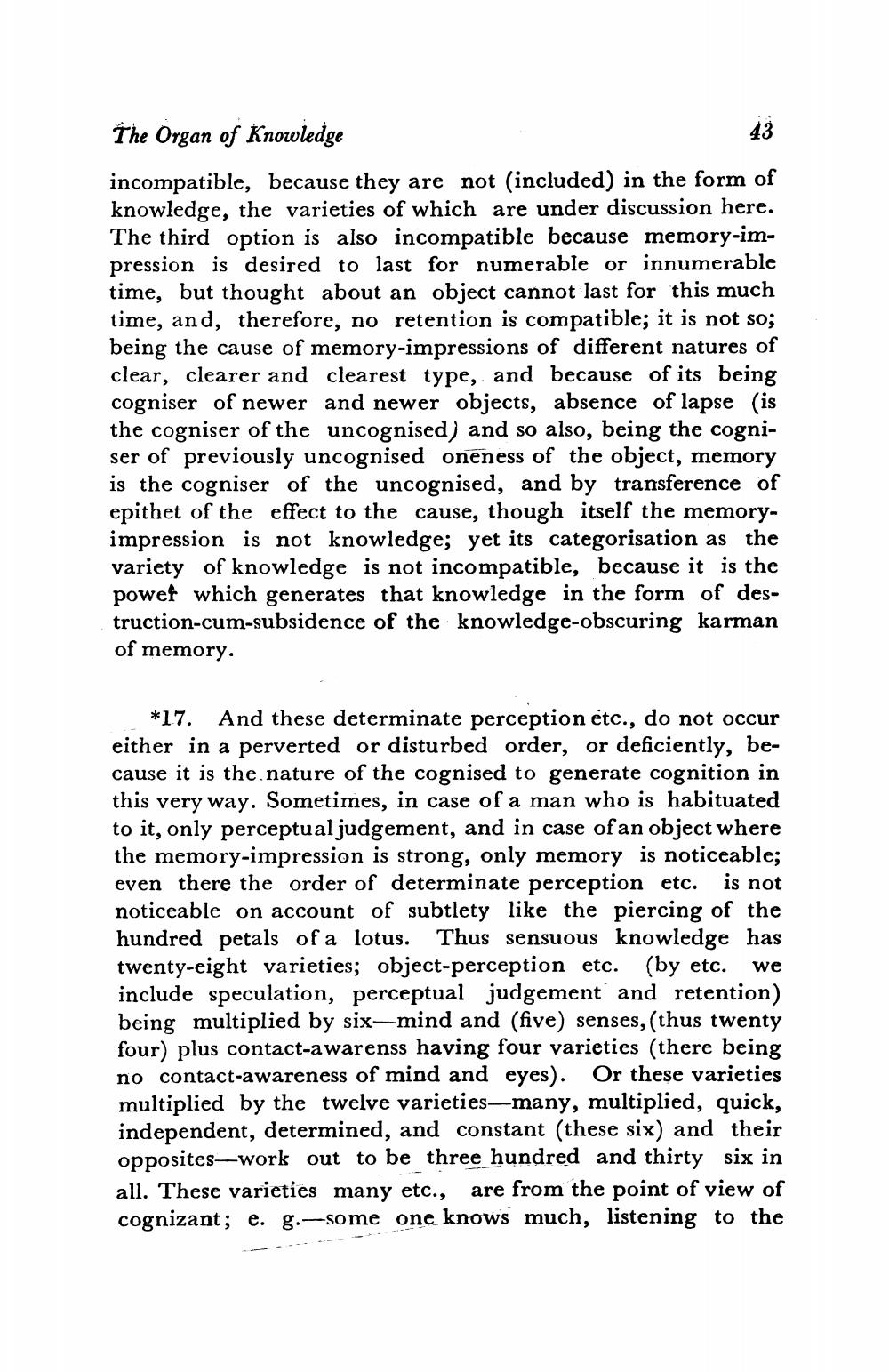________________
The Organ of Knowledge incompatible, because they are not (included) in the form of knowledge, the varieties of which are under discussion here. The third option is also incompatible because memory-impression is desired to last for numerable or innumerable time, but thought about an object cannot last for this much time, and, therefore, no retention is compatible; it is not so; being the cause of memory-impressions of different natures of clear, clearer and clearest type, and because of its being cogniser of newer and newer objects, absence of lapse (is the cogniser of the uncognised) and so also, being the cogniser of previously uncognised oneness of the object, memory is the cogniser of the uncognised, and by transference of epithet of the effect to the cause, though itself the memoryimpression is not knowledge; yet its categorisation as the variety of knowledge is not incompatible, because it is the powet which generates that knowledge in the form of destruction-cum-subsidence of the knowledge-obscuring karman of memory.
*17. And these determinate perception etc., do not occur either in a perverted or disturbed order, or deficiently, because it is the nature of the cognised to generate cognition in this very way. Sometimes, in case of a man who is habituated to it, only perceptual judgement, and in case of an object where the memory-impression is strong, only memory is noticeable; even there the order of determinate perception etc. is not noticeable on account of subtlety like the piercing of the hundred petals of a lotus. Thus sensuous knowledge has twenty-eight varieties; object-perception etc. (by etc. we include speculation, perceptual judgement and retention) being multiplied by six-mind and (five) senses, (thus twenty four) plus contact-awarenss having four varieties (there being no contact-awareness of mind and eyes). Or these varieties multiplied by the twelve varieties-many, multiplied, quick, independent, determined, and constant (these six) and their opposites—work out to be three hundred and thirty six in all. These varieties many etc., are from the point of view of cognizant; e. g.-some one knows much, listening to the




